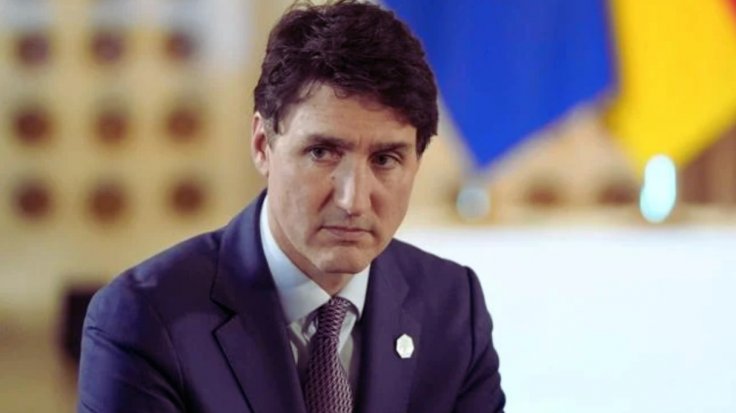Justin Trudeau: Embattled Canadian Prime Minister Resigns after 10 Years Amid Growing Public Outcry
Canadian Prime Minister Justin Trudeau announced on Monday that he is resigning after almost ten years in office, citing increasing pressure for him to resign and “internal conflicts” within his progressive party. This comes just days before Donald Trump, mocked the Canadian leader by suggesting his country would be better off as the 51st U.S. state, enters office.
Amid turmoil in his administration, a disappointed Trudeau announced that Parliament would remain suspended until March 24. Trudeau, who has held office since 2015, also said that he will remain in his position until the Liberal Party selects a successor following his surprising decline in popularity as he now intends to leave.
Bidding Adieu
X
“I am a fighter, and I am not someone who backs away from a fight, particularly when a fight is as important as this,” Trudeau said as he announced his resignation at a news conference outside his home at Rideau Cottage in Ottawa.
“But I have always been driven by my love for Canada, by my desire to serve Canadians and by what is in the best interests of Canadians — and Canadians deserve a real choice in the next election.
“It has become obvious to me, with the internal battles, that I cannot be the one to carry the liberal standard into the next election,” he added.
The announcement follows a period of intense pressure on Trudeau, as he faced growing demands for his resignation in recent weeks, spurred by a series of concerning polls showing a significant drop in support.
Recent surveys have indicated that under his leadership, the Liberal Party would suffer a heavy defeat in the upcoming election against the Conservative Party, led by his rival Pierre Poilievre.
The election, which must take place by late October, would likely be lost if Trudeau remained in charge.
Canada’s Parliament, originally scheduled to reconvene on January 27, will now be on hold until March 24.
This will give the Liberal Party time to conduct a “thorough, nationwide competitive” leadership race to find his replacement. Trudeau also said that he had already asked the party president to begin the process of selecting a new leader.
“It’s time for a reset,” Trudeau said, adding that Parliament had been “seized by obstruction, filibustering and a total lack of productivity” in the past few months.
“It’s time for the temperature to come down, for the people to have a fresh start in Parliament, to be able to navigate through these complex times,” the PM said.
Bowing Out as Unpopular Leader

X
Trudeau’s popularity has sharply declined in recent years due to a variety of issues, including government spending and the rising costs of food and housing.
Calls for his resignation gained momentum after his former finance minister, Chrystia Freeland, suddenly resigned last month. Her resignation came after Trudeau attempted to demote her when she opposed his plans for increased spending.
In a harshly worded letter, Freeland accused Trudeau of using “political gimmicks” instead of prioritizing the country’s economic well-being.
The ongoing political turmoil also coincides with the potential threat of a Trump presidency, which could lead to 25 percent tariffs on all Canadian goods. Trump, who has repeatedly criticized Trudeau since his 2016 election, has warned of imposing these tariffs unless Canada takes action to curb what he calls the flow of migrants and drugs across the border.
Trudeau, the son of former Prime Minister Pierre Trudeau, became the leader of the Liberal Party in 2013 when it was in disarray and had fallen to third place in the House of Commons for the first time in history.
He later led the Liberals to victory in 2015, promising a vision of “sunny ways” with a progressive platform focused on women’s rights and addressing climate change.
Trudeau went on to secure re-election twice, making him one of Canada’s longest-serving prime ministers.
In his resignation statement, Trudeau criticized Poilievre, claiming that the conservative leader did not represent the right vision for the Canadian people.
“We need an ambitious, optimistic view of the future, and Pierre Poilievre is not offering that,” he said.
Poilievre gained significant attention in early 2022 when he supported truck drivers who occupied downtown Ottawa in protest against COVID-19 vaccine mandates.

